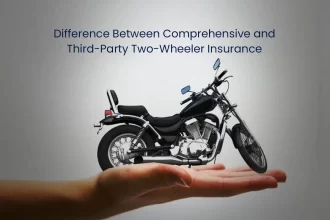Did you recently buy a new car? Are you worried you have to go through the tiring process of getting insurance again? Let us tell you that switching cars on insurance is possible. There’s no need to buy new insurance; you can transfer your previous insurance to your new car effortlessly.
If you want to know the process, we are here to explain to you in detail about the new car replacement insurance policy. Below, we have provided a simple step-by-step process that you need to follow to transfer your insurance.
Importance of Transferring Auto Insurance

The excitement of buying a new car is unmatched; you cannot wait to ride it or show it to your loved ones. But there are also some major responsibilities that you need to fulfill with your new car.
The first thing is transferring car insurance. Yes, insurance coverage is necessary in a lot of places, and you need to do it to avoid penalties. You do not want to be uninsured when your car meets with an accident, so insurance also saves you from financial risks.
With the transfer of your car insurance, you get the same protection that you got in your old car, which keeps you stress-free from buying a new insurance policy.
5 Steps To Transfer Auto Insurance To A New Car
By now, you must have understood the importance of switching cars on insurance, and the good thing is it can be done in 5 easy steps.
Step 1: Contact Your Insurance Provider
- When transferring car insurance, the first step is to notify your insurer. You need to inform them that you have a new vehicle and want to know how to transfer auto insurance to a new car. You need to be clear about your requirements and ask them in detail about the whole process of transfer.
- From charges to features that you will be getting in your new insurance, you should be well-informed about it. In case you want to switch the insurance provider and want to try out a new service provider, you will have to cancel your previous insurance policy.
Step 2: Provide Car Details
- The next step is very crucial in the process of insurance for a second car. You need to give all the important details of your car to your insurance provider. This includes the make, model, and year of the car.
- Along with it, he can ask you about the VIN and registration number too. Make sure the details you are giving are accurate so that you get the right level of protection for your new vehicle too.
Step 3: Update or Transfer Policy
- Once you have submitted all the necessary details to your insurer, they will let you know if you need to get comprehensive auto insurance based on the model of your new car.
- In case you have bought an expensive car this time, there will be a rise in liability limits. Your old car may have the minimal coverage benefits that you need to upgrade now based on the new car’s specifications.
Step 4: Pay Any Adjustments
- Knowing your car’s type and value may increase or decrease your monthly premium. Upgrading to a better or more expensive car means the insurer will have to add more features to your insurance, which can increase the premium.
- On the other hand, insurance premium reduction is also possible if you are downgrading to a car that is less expensive than your old car. Your car insurance transfer will be done after calculating the adjustments.
Step 5: Confirm and Get Proof
- At last, once your transfer is done, make sure you have all the documents that prove the policy is shifted to a new vehicle. These documents will be needed while registering a new car. The updated documents are also necessary to avoid any legal issues while driving.
- Your updated documents will be proof of your new insurance; make sure you have that in your hands before finalizing the transfer.
Benefits Of Transferring Insurance To A New Car
Now that you know that insurance for a second car can be transferred from an old one, there’s no need to open a new insurance policy; you must understand the benefits that you will get by taking this step.
- Savings:
An auto insurance transfer saves you a lot of time and money. The best part is you do not have to go through the exhausting process again of filling out the forms and contacting your insurance provider. Saves you a lot of time! Secondly, with new car insurance come administrative fees that you will be avoiding with transferable insurance. Moreover, you become eligible for loyalty discounts that some insurers offer.
Say, for example, you upgraded your sedan to the latest model. If you transfer your existing insurance policy, you avoid a $150 administrative fee that a new policy might have required. Plus, there’s a chance you might get a 10% loyalty discount too!
- Convenience:
Transferring insurance from one car to another means there’s no need to provide your details and documents for the insurance. Your insurer already has your details with you. Also, with transferable insurance, there’s no need for tracking multiple due dates; you only have to manage one policy, which makes the process hassle-free for you.
3 Things to Remember When Transferring Insurance
Although switching cars on insurance is indeed a great way to save money and time, there are still some crucial points that you need to be aware of when following the transfer procedure.
1. Avoid gaps in coverage:
What you need to do after buying a car is make sure that there’s no gap between your old and new insurance. The renewal of old insurance should be done as soon as your old car is removed from the previous policy. Having a gap between the policies may lead to fines and penalties. You may also have to increase future premiums, which you surely want to avoid. This is one of the crucial steps that many car owners overlook, but if you do not want to pay extra, make sure you are not aware of the renewals.
2. Keep a Check on Important Documents:
In your insurance transfer process, make sure you have all the updated documents that your insurer needs for auto insurance transfers. The documents involve the vehicle identification number (VIN), the registration number of your vehicle, and a personal identification document. Having these documents ready with you will help the insurer give you the policy that suits you after considering the vehicle you have purchased.
3. Review the Policy:
Although you know your insurer and are well aware of the policies when it comes to insurance for a new car, even though you are transferring it, make sure that you have read the policy and know the features added to it. The new policy should align with the needs of your new vehicle. You may need to add some updated features that were not needed in your old vehicle. Reviewing the coverage limits of your policy will ensure that you have the same level of support in emergencies.
Always Transfer Instead Of Canceling Your Policy
One of the important car insurance renewal tips is that you should never cancel your auto insurance. Here are the many advantages that transferring car insurance has ever terminating it:
- When you search for a new insurance policy, it may take some time to get the right quote, a trustworthy insurer, and a policy that matches your preferences. If you have a coverage lapse between your new and old policy, you may go into the category of a high-risk customer. This will mean that you have to pay higher premiums for a new policy.
- When you switch car insurance, your insurer may provide you with a loyalty discount and also bonuses that can reduce your premium charges over time. However, when canceling your policy, you may have to pay cancellation charges, which can lead to additional expenses.
- When you transfer your insurance, you can easily update the policy to match your new vehicle. If you have a high-value vehicle, you can seamlessly get the features that are needed for this vehicle.
Seamlessly Transfer And Update Car Insurance When Buying A New Vehicle
One of the car insurance renewal tips is that when you are planning to transfer your insurance, make sure you are taking all the necessary points. Your insurer will be well-informed about the transfer and the details you should be providing about your new vehicle should be accurate. If you are selling your car, do not forget to transfer the insurance to the new owner of the car.
Before confirming the transfer, make sure you have checked the documents properly, along with your personal and car details. Collect all the necessary documents from your insurer as proof of your transfer. Being organized will help you have a smooth transfer process.
Conclusion:
Switching cars on insurance is a straightforward process; it does not have to be complicated. It is convenient and time-saving. Just make sure you’re aware of any fees or possible penalties. Do not let the worry of canceling car insurance come in the way of your buying yet another car!
Frequently Asked Questions ( FAQs)
Can I Transfer My Existing Auto Insurance Policy To Any Car I Purchase?
Yes, transferring car insurance from your exciting vehicle to a new one is possible. There may be adjustments in premiums and coverages based on the model of your new vehicle.
Is There A Time Limit For Transferring Auto Insurance To A New Car?
yes, there is a time limit for transferring your insurance policy. You typically have between a week and a month, depending on your insurance provider.
Will Transferring Auto Insurance To A New Car Affect My Premium?
Your premium will increase or decrease depending on the model and type of your vehicle. The insurer will check the value of your car along with safety features.
Can I Transfer Insurance Coverage From A Leased Car To A New Car Purchase?
yes, it is possible to do so. All you need to do is adjust the coverage to meet the requirements for owning a vehicle. You may have to add comprehensive coverage.
Do I Need to Inform My Insurance Provider If I Plan to Sell My Old Car?
It is important to inform your insurer about the sale of your old car. He will help you in updating the policy, ensuring you are no longer paying for the insurance that you do not own now.
Does It Cost To Transfer Insurance To Another Car?
Auto insurance transfer is mostly free but you may have to pay the charges for premiums and coverage that will change depending on the type of vehicle you own now.
How To Transfer Insurance To Another Car?
Make sure to contact your insurance provider, give them all the necessary documents, adjust the policy, and review the documents before finalizing. So, this is how your insurance will be transferred.
How To Get Insurance On A New Car?
To get insurance for new cars, you can either get in touch with your current insurance provider or find a new quote. Provide the car details, select the coverage options, and finalize the policy.
How Long Does It Take To Transfer Insurance From One Car To Another?
The process timing depends on your insurance provider. Majorly, it takes a few hours to a day for the approval of transferring an insurance policy.















